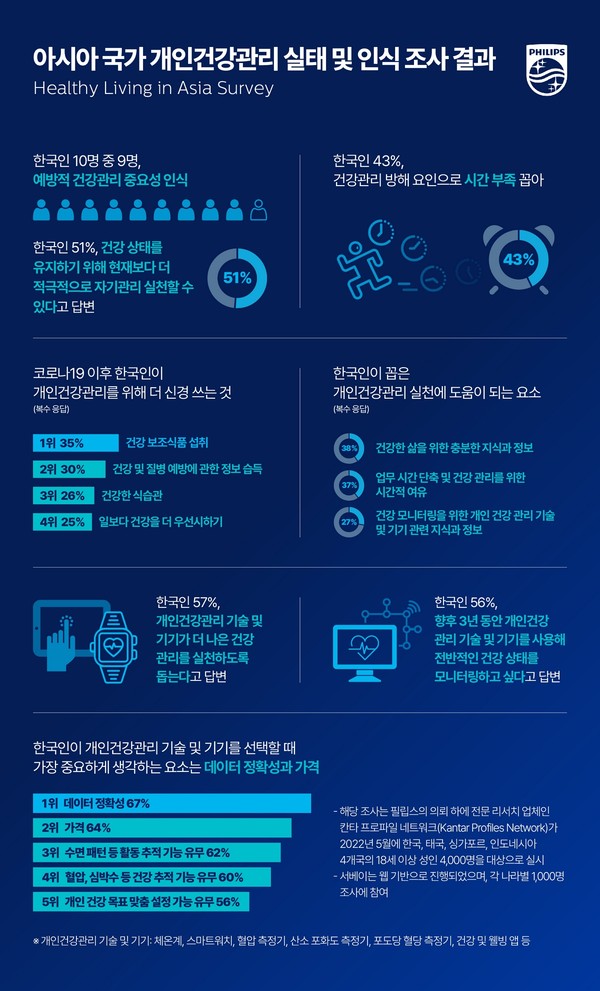Personalized healthcare technology will play a greater role in preventive healthcare management in Asia, but there are gaps in personal healthcare among Koreans.

Global health technology company Philips said so Friday, releasing the result of its recent personal health management survey in four Asian countries.
Philips conducted the "Healthy Living in Asia Survey" with Kantar Profiles Network on 4,000 people in Korea, Singapore, Thailand, and Indonesia to figure out changes in people's attitudes toward healthy lifestyles, personal healthcare skills, and overall health after the Covid-19 outbreak.
The survey results, released ahead of International Self-Care Day on Sunday, confirmed a growing interest in preventive healthcare in Asian countries.
For example, 89 percent of Korean respondents considered preventive health care important. In addition, after Covid-19, 35 percent of Koreans ate more health supplements than before, 30 percent read more health and disease prevention data, 26 percent ate healthier meals, and 25 percent put health before work, according to the opinion poll.
Although interest in healthy lifestyles and the rate of practice have increased due to Covid-19, half of the respondents in the four Asian countries, including 51 percent of Koreans, agreed that they could do more to maintain their health compared to their current health management, revealing a gap in individual healthcare.
To encourage personal healthcare, 38 percent cited the need for sufficient knowledge and information for a healthy life, followed by the need to reduce working time and have more spare time to manage health (37 percent), and knowledge and information on personal health management skills and devices for health monitoring (27 percent).
Subsequently, 56 percent of Korean respondents said they would use personal healthcare technologies and devices to monitor their overall health conditions, while 57 percent agreed they would use them to monitor underlying diseases over the next three years.
In selecting personal healthcare devices, 67 percent said they would consider data accuracy most, followed by price (64 percent), and activity-tracking function (62 percent)
"It is very encouraging that most Koreans are aware of the importance of maintaining health and managing underlying diseases,” said Park Hee-je, head of Philips Korea Personal Health Division. “Developing smarter personal health care technologies can be one of the ways to encourage disease prevention. Philips will continue to support such efforts."

